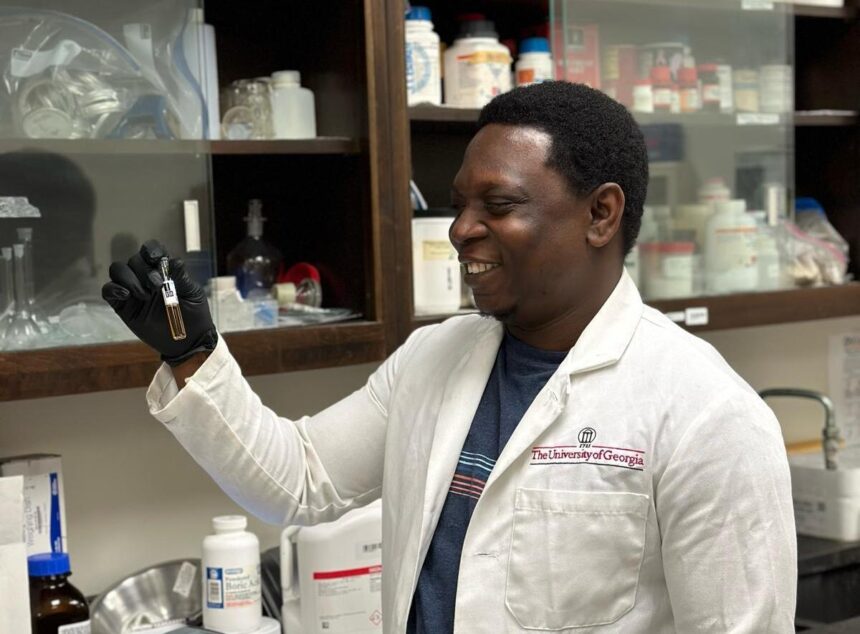A Nigerian-born environmental scientist, Olajide Oladipo, has developed a low-cost solution for removing toxic boron from coal ash wastewater in the United States.
According to a research report made available to journalists, the environmental solution represents a major advancement in environmental remediation and water safety.
Oladipo, a doctoral researcher in Environmental Geochemistry at the University of Georgia, US, has created a treatment system that eliminates over 99 per cent of boron from coal combustion residuals (CCR) wastewater.
The report noted that the system utilises recycled aluminium cans, steel slag, and agricultural waste-derived biochar—materials that are readily available and inexpensive.
“This work is about more than science; it’s about justice, access, and hope. We’re transforming industrial and agricultural waste into tools for environmental protection,” Oladipo said.
Coal ash, a toxic byproduct of coal-fired power plants, continues to threaten groundwater across the US, even as coal’s share of the energy mix has declined from nearly 50 per cent in 2008 to 15 per cent in 2024.
The US Environmental Protection Agency (EPA) has imposed stricter regulations on pollutants such as boron, which is harmful to plants and aquatic life in high concentrations. However, existing boron-removal technologies are often too costly for utility companies to implement at scale.
Backed by major energy sector stakeholders, the research report explained that Oladipo’s innovation complies with the EPA’s Coal Combustion Residuals Rule and Effluent Limitations Guidelines, while also aligning with federal objectives on circular economy, climate policy, and environmental justice.
Meanwhile, his work has received national recognition—he was a finalist in the American Association of Petroleum Geologists’ sustainable development competition and won first place at the River Basin Center’s Confluence symposium.
Oladipo said he has also presented his findings at leading scientific gatherings, including the Geological Society of America (GSA), the American Geophysical Union (AGU), and the World of Coal Ash (WOCA).
Born and raised in Nigeria, Oladipo is building research partnerships between US and Nigerian institutions. He is mentoring students and advocating for the adoption of low-cost remediation solutions in Africa.
“Nigeria has both the need and the capacity to lead in sustainable remediation. What we lack is often the bridge between research and implementation,” he said.
Despite global energy transitions, coal remains a key part of the US power grid, and the study indicates that Oladipo’s method offers a rare bipartisan advantage—supporting both environmental remediation and infrastructure resilience.
“Sometimes, the future comes from what we throw away,” he said.
ALSO READ FROM NIGERIAN TRIBUNE






